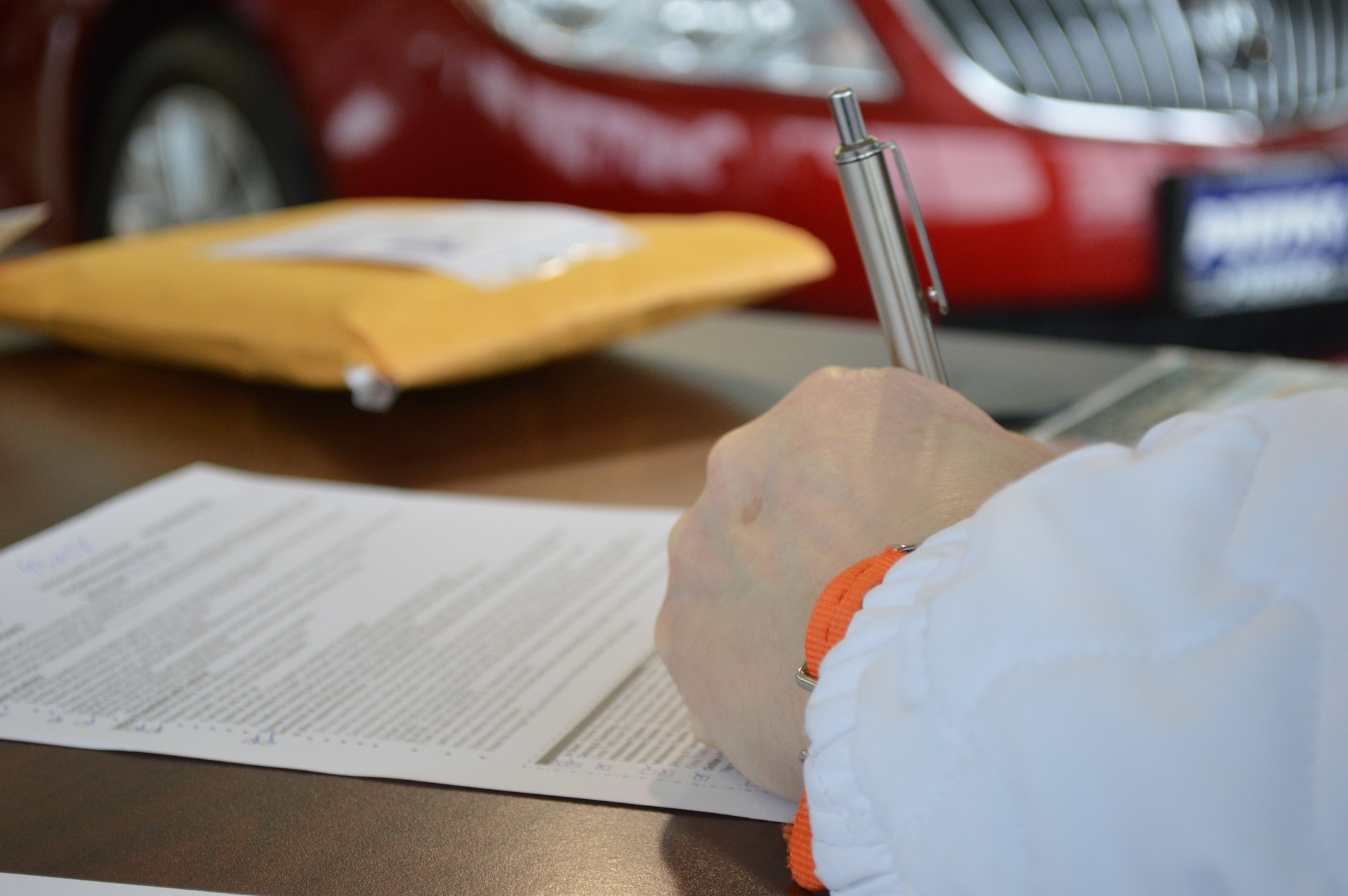The day you take delivery of a new car can be a very happy one indeed. However, the day the bill comes for the first monthly payment might well give you pause — unless you are adept at reviewing new car sales contracts.
If ever there’s a time to read carefully before signing, it’s when you’re buying a new car. Most car dealers are honest people who run their businesses with good intentions. However, there are some who will look for every opportunity to pad their profits.
Here’s what you need to confirm before providing your signature.

The Car You’re Buying is the Car You Bought
As farfetched as it might seem, it is possible to get a car other than the one you thought you were buying.
A green Camry is a green Camry — right?
Well, one green Camry might be a base model while the other one is fully loaded. If you think you’re buying the heavily optioned one, but the base model is listed on your contract—it’s a good time to start asking questions.
Make sure the vehicle identification number (VIN) written on the purchase agreement matches the one on the car you’re intending to buy.
While you’re confirming information, be certain your name is spelled correctly, as is your address. You’ll also want to ensure the driver’s license number recorded on the contract matches yours.
The Terms Match
You’ll agree to pay a certain amount for the car during the negotiation process. The price will be broken into monthly payments if you’re financing it. These will be based upon the length of the loan, as well as the down payment you make and the interest rate charged for the loan. Be certain all those numbers match what you agreed to pay before you sign a contract.
The car-buying experts at Edmunds.com recommend carefully reviewing the following details to ensure they reflect the agreement you reached with the salesperson:
1. Vehicle sale price
2. Trade-in credit
3. Interest rate, keeping in mind a subprime car loan will cost a bit more in interest payments if your credit score is low
4. Loan length
5. Add-ons, such as service contracts (extended warranties), theft-deterrent systems or additional insurance products
6. Amount financed
7. Rebates
8. Total down payment
9. Monthly payment
Certain fees and taxes will be added to the price you agreed to pay for the car. Always negotiate based on the “out-the-door” price so you can be clear about what’s expected of you. In other words, have them state the total amount with all taxes and fees included.
While we’re on the subject of fees, always ask for an explanation of every single one. Unscrupulous dealers have been known to include bogus fees.
No Added Extras
Shady operators will often add service agreements, extended warranties and other costly items to sales contracts to make the price higher. You’ll have to tell them to remove them before signing; otherwise, you’ll be on the hook for them
Other such add-ons include paint sealant, anti-theft etching, upholstery protection and undercoating. Strong cases will be made for the purchase of these items when you question them. In fact, they might even be presented as being mandatory. However, they are optional extras, typically added in the hopes you’ll sign for them just the same.
You’ll be told something along the lines of, “This only adds $20 per month,” as if that’s a benign figure. However, $20 a month over 60 months is an additional $1,200 — before interest is applied. Refuse them out of hand, even if it sounds like something you might like to have. All of them can be bought on your own for far less money.
Reviewing new car sales contracts with this advice in mind will help you get the car you want at the fairest price possible. Yes, this means it will take longer to complete the transaction, but take your time and resist being rushed. Those extra minutes could make thousands of dollars’ worth of difference in total cost of your new car.


